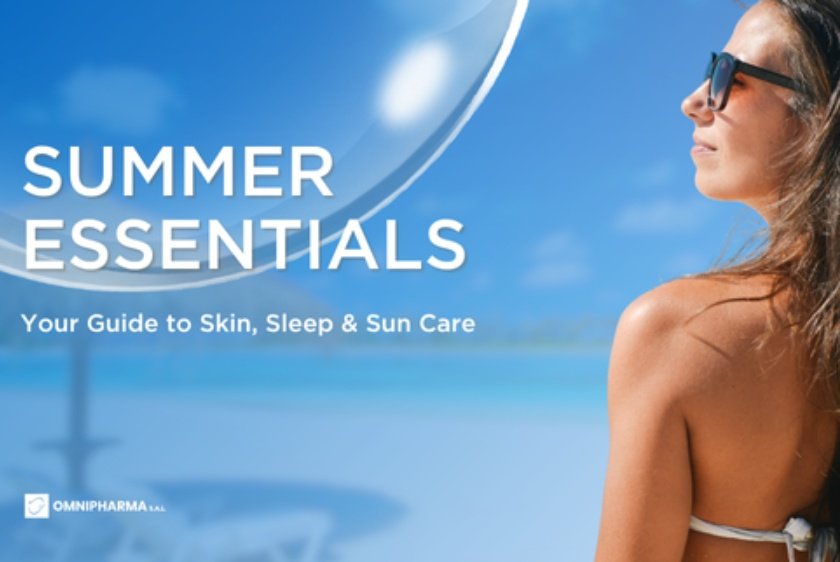Summer Essentials: Your Guide to Skin, Sleep & Sun Care
As the temperatures rise and the days grow longer, summer brings vibrant energy and outdoor opportunities, but it also demands extra care for our skin, sleep habits, and sun exposure. Understanding how to protect yourself from the unique challenges summer presents is key to maintaining overall health and wellbeing.
In this article, we’ll explore practical tips and science-backed advice on caring for your skin, optimizing your sleep, and protecting yourself from the sun during the hottest months of the year.
1. Skin Care: Hydration & Protection Are Key
Summer heat and increased UV exposure can cause skin dehydration, sunburn, premature aging, and other dermatological concerns.
Hydration: Water is essential for maintaining skin elasticity and promoting repair. According to the National Academies of Sciences, Engineering, and Medicine, adult women need about 2.7 liters of total water daily, and men need about 3.7 liters — including fluids from food and beverages.
Sun Protection: Ultraviolet (UV) radiation is the primary cause of sunburn and increases the risk of skin cancer. The Skin Cancer Foundation recommends using a broad-spectrum sunscreen with at least SPF 30, applying it generously every two hours, and after swimming or sweating.
After-Sun Care: Using moisturizers with soothing ingredients like aloe vera or chamomile can help calm sun-exposed skin and prevent peeling.
2. Sleep: Overcoming Summer Challenges
The longer daylight hours and higher temperatures can disrupt our natural circadian rhythms and affect sleep quality.
Maintain a Cool Environment: The National Sleep Foundation states that an ideal bedroom temperature for sleep is between 60-67°F (15-19°C)3. Using fans, air conditioning, or breathable bedding materials can improve comfort.
Consistent Sleep Schedule: Try to keep consistent bed and wake times even during summer to support your body’s internal clock.
Limit Light Exposure Before Bed: Exposure to bright screens or daylight late in the evening can interfere with melatonin production, making it harder to fall asleep
3. Sun Care: Beyond Sunscreen
While sunscreen is crucial, comprehensive sun care involves additional protective measures.
Wear Protective Clothing: Long sleeves, wide-brimmed hats, and UV-blocking sunglasses help shield skin and eyes from harmful rays.
Seek Shade: Avoid direct sun exposure, especially between 10 a.m. and 4 p.m., when UV radiation is strongest.
Stay Hydrated: Dehydration increases sensitivity to sunburn and heat-related illnesses. Drink plenty of fluids throughout the day.
Know Your Skin: According to the American Academy of Dermatology, individuals with fair skin, light eyes, and those who burn easily should be especially vigilant.
Summer is a wonderful time to enjoy the outdoors and soak up the sunshine, with the right care, you can protect your skin, maintain healthy sleep, and avoid the pitfalls of excessive sun exposure. Incorporating hydration, sleep hygiene, and sun safety into your daily routine will help you stay healthy and radiant all season long.
References
National Academies of Sciences, Engineering, and Medicine. (2004). Dietary Reference Intakes for Water, Potassium, Sodium, Chloride, and Sulfate.
Skin Cancer Foundation. (n.d.). How to Choose and Use a Sunscreen.
National Sleep Foundation. (2021). How Temperature Affects Sleep.
Harvard Health Publishing. (2019). Blue Light Has a Dark Side.
American Academy of Dermatology. (n.d.). Skin Cancer.
